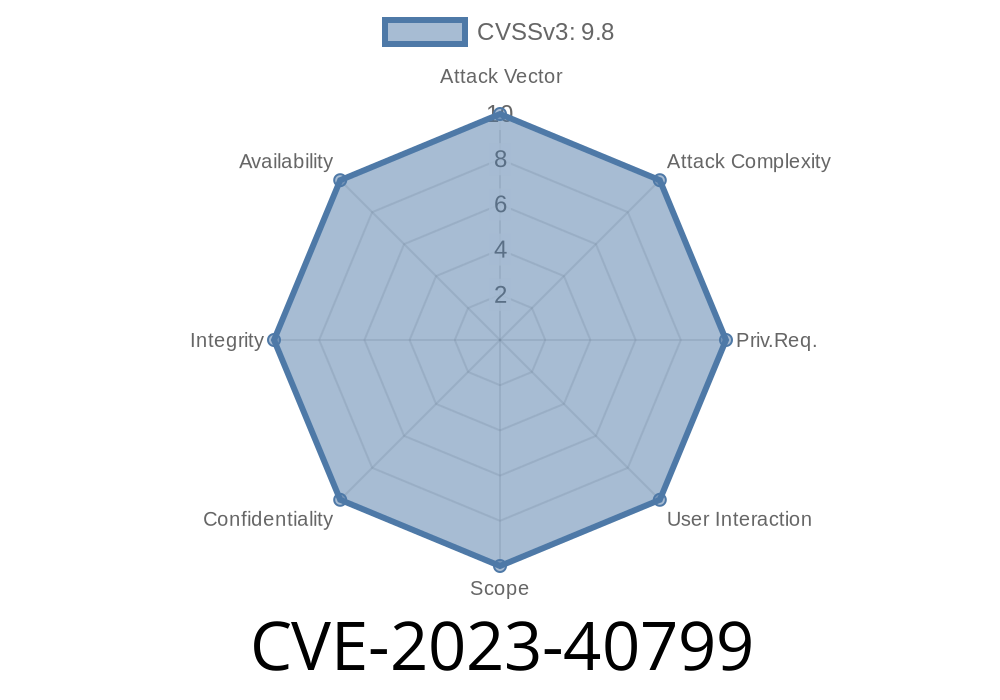In the fast-moving world of home and small office networking, Tenda routers offer affordable, high-performance solutions. However, not all firmware releases are created equal. In August 2023, researchers uncovered CVE-2023-40799, a buffer overflow vulnerability in the Tenda AC23 router running firmware version V16.03.07.45_cn. The flaw lives in the sub_450A4C function. This post will take you through what the vulnerability is, how it can be exploited, and what you need to do to stay safe.
What Is CVE-2023-40799?
In short, CVE-2023-40799 is a buffer overflow in the processing function sub_450A4C of the Tenda AC23 router's firmware (V16.03.07.45_cn). A buffer overflow occurs when software writes more data to a buffer—a temporary storage area—than it can hold, which allows an attacker to overwrite adjacent memory. This is dangerous because it can lead to code execution, making the router vulnerable to attackers looking to take control or steal data.
Vulnerable Function: sub_450A4C
This function (sub_450A4C) handles incoming user or network data—often from an HTTP web interface or internal process. It fails to properly check the length of the input before copying it into a fixed-size buffer, setting the perfect stage for buffer overflow.
Example Vulnerable Code (Pseudocode)
void sub_450A4C(char *user_input) {
char buffer[128];
// Vulnerability: no input length check
strcpy(buffer, user_input);
// ...rest of the logic
}
The problem: If user_input is longer than 128 bytes, it will overwrite adjacent memory.
How Can This Be Exploited?
Attackers can craft a malicious HTTP request or packet to send to the router, with an unusually long value in a parameter handled by this function. Since there's no length checking, this data smashes the stack past the local buffer, potentially overwriting the return address. With careful alignment, the attacker can redirect code execution—to execute their own code (“shellcode”) on the router.
Step-by-Step Exploitation Overview
Below is a simplified example of how exploitation works, focusing on the vulnerable endpoint.
Step 1: Find the Vulnerable Endpoint
First, identify the web or network endpoint that calls sub_450A4C. Often, this could be accessed via a POST request to the router's web management port.
Step 2: Craft the Malicious Payload
Attackers create input that is much longer than 128 bytes, plus a malicious payload (shellcode), and overwrite the return pointer.
Exploit Pseudocode Snippet
import requests
url = "http://<router_ip>/some_vulnerable_path";
payload = "A" * 132 # Overflows the buffer and overwrites return address
payload += "\xef\xbe\xad\xde" # Overwrite with test address or shellcode location
data = {'vuln_param': payload}
response = requests.post(url, data=data)
print('Sent exploit, status code:', response.status_code)
The attacker can use Metasploit or custom shellcode to gain further control.
Step 3: Take Over the Router
Once the return address points to code they control, the attacker might spawn a remote shell, giving full command execution capability on the router.
Original References
- NVD Record for CVE-2023-40799
- SecList Full Disclosure Advisory *(if available)*
- Firmware download links (official Tenda site)
Update Your Router Firmware
Tenda may have released a patch or new firmware—download the latest from the official Tenda site.
Network Segmentation
Place critical devices on a separate network/VLAN from the router's management interface.
Conclusion
The CVE-2023-40799 Tenda AC23 buffer overflow bug is a textbook example of how unchecked input can turn into a full-blown security disaster. Anyone running Tenda AC23 on firmware V16.03.07.45_cn should upgrade immediately and practice good network hygiene.
Stay aware, protect your networks, and always keep your devices updated.
*If you want more exclusive firmware deep dives and exploit breakdowns, check back here regularly!*
Timeline
Published on: 08/25/2023 15:15:09 UTC
Last modified on: 08/29/2023 16:05:17 UTC
